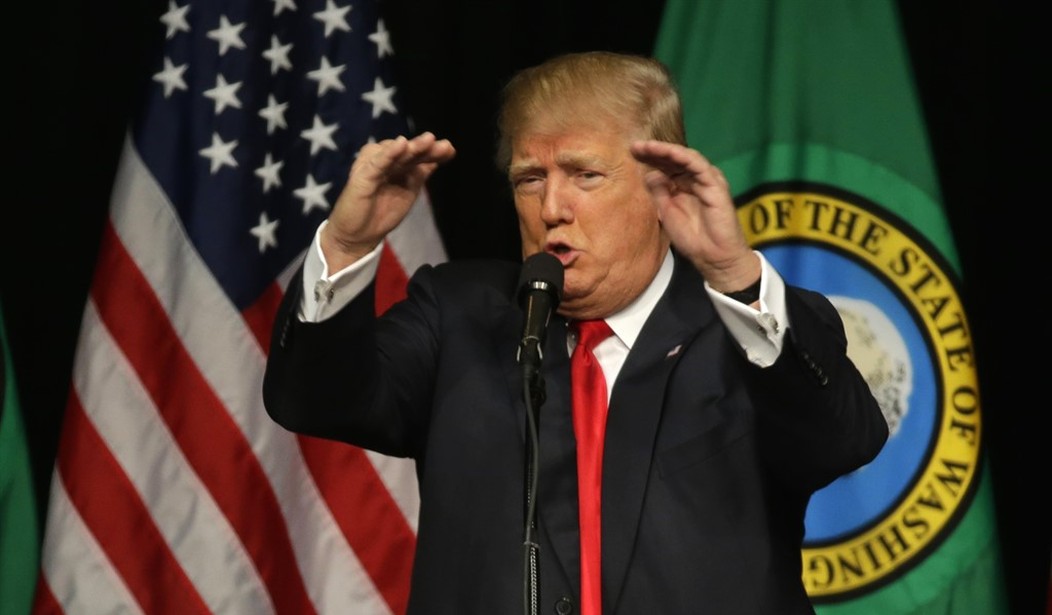This presidential election is like no other.
Most election years around this time, I do a TV show on nasty political commercials. Pundits explain which ads worked, which didn't, and who won because he raised more money and spent more on negative ads.
Among Republicans this year, says Ad Age, Jeb Bush's campaign and supporters spent the most, $80 million, followed by Marco Rubio's at $70 million. It didn't seem to help.
Democrats spent even more. Hillary Clinton's campaign and backers spent $153 million and Bernie Sanders' $76 million.
Donald Trump, of course, was the brunt of much of that negative advertising. Clinton, Sanders, Ted Cruz, John Kasich, Bush, the Club for Growth, Our Principles, New Day for America, Correct the Record and Keep the Promise super PACs ran commercials that I thought would devastate the Trump campaign.
Some replayed his crude comments: "Does she have a good body? No! Does she have a fat ass? Absolutely."
Some replayed flip-flops. After Trump complained about China "stealing our jobs," David Letterman asked Trump where his ties came from. "China," admitted Trump.
"Where are your shirts made?" asked Letterman.
"We employ people in Bangladesh," said Trump. And in a debate, he said, "We're doing many, many deals outside of the United States."
Political commercials showed that Trump once pushed for forms of Obamacare that most Republicans hate. In one ad, a reporter asked Trump about health care:
Reporter: Universal health care?
Trump: I am going to take care of everybody.
Reporter: Who pays for it?
Trump: The government is going to pay for it.
Other ads played a sound bite of Trump saying, "I probably identify more as a Democrat."
Trump's opponents spent millions to reveal Trump in his own words, caught contradicting himself on TV. Pundits called the ads "devastating." Most Republican primary voters didn't care.
Recommended
Soon, the ads may get still nastier.
Every election season pundits complain about "negative campaigning." When President Obama last ran, he said, "It can seem like a return to civility is not possible." Four years before, reporters claimed "candidates have taken dirty to a whole new level."
People say they long for a return to politeness in politics -- but politics was never polite.
Thomas Jefferson's supporters printed handbills that said: "John Adams is a blind, bald, crippled, toothless man who secretly wants to start a war with France. When he is not busy importing mistresses from Europe, he's trying to marry one of his sons to a daughter of King George III."
Adams supporters came back with: "If Thomas Jefferson wins, murder, robbery, rape, adultery and incest will be openly taught and practiced. Are you prepared to see your dwellings in flames? Female chastity violated? Children writhing on the pike?"
Had TV existed then, those would have been powerful commercials.
One hundred sixty-eight years later, when Barry Goldwater ran against Lyndon Johnson, Johnson supporters claimed Goldwater was a John Birch Society member and a schizophrenic. A magazine called "Fact" got a thousand psychiatrists to sign a statement that said Goldwater was insane. None of it was true, and Goldwater later won a defamation suit against Fact. But by then, the election was over.
Despite such deceit, we're probably better off with negative ads.
Every year some candidates say, "I will run a positive campaign."
Part of my brain says, "That would be nice; maybe we'll learn more about their plans." But research shows that's rarely true. Fluffy "positive" ads don't tell us much.
This year Bernie Sanders ran ads showing him hugging people while cheering crowds surrounded him and singers sang "All come to look for America."
What does that even mean?
The beauty of negative ads is that the accusations at least purport to be facts. Vanderbilt University political scientist John Geer found that three-quarters of negative political ads from 1960 to 2004 attacked real statements of policy from the opposing candidate. Such policy statements can be checked.
Even if those statements turn out to be based on lies, those lies force the other side to reply with facts. Voters actually learn something. And usually, eventually, the truth comes out.
So two cheers for negative ads -- something good comes from nasty. I'll play some of the worst ads on my show this week. The messages are mean, but truth often is.

























Join the conversation as a VIP Member